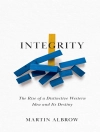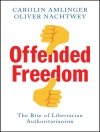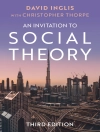This book is based on the understanding that the diversity and heterogeneity of science and society are not only issue of critique, but engender experimental forms of collaboration. Building on John Dewey’s experimental theory of knowledge and inquiry, practice theory, science and technology studies and the anthropology of nature, the book offers a trenchant redefinition of a present-focused sociology as a science of experience in the spirit of experimentalism. Crisis, instead of being a mere problem, is understood as the baseline for creativity and innovation. Committed to the experimental pursuit, the book provides an experience-based methodological approach for an inter- and trans disciplinary sociology. Finally, it argues for a globalized and transformative sociological outreach beyond established epistemic and national borders. This book is of interest to sociologists and other social scientists pursuing experimentalism in theory, method and/or practice.
Tabela de Conteúdo
Chapter 1: Introduction: Experimentalism – an Old Name for Some New Ways of Thinking.- Chapter 2: Categorial Foundations for a Social Theory of Experimentalism: John Dewey as Sociologist.- Chapter 3: Test Run I: What means Experience? Experimentalist Sociologies as Theories of Knowledge.- Chapter 4: Test Run II: What means Test? Social-Theoretical Effects of Experimentalism.- Chapter 5: Test Run III: What means Cooperation? Experimentalism as a Contribution for a Critical Social Ecology.- Chapter 6: Conclusion – from the Science of Crisis to the Science of Experience.
Sobre o autor
Tanja Bogusz, Ph D habil. is a sociologist and social anthropologist at the Center for Sustainable Society Research (CSS) at Hamburg University, Germany. She has published broadly on French sociology and anthropology (classic and contemporary), pragmatism and practice theories, social sciences of nature and sociological experimentalism. She was appointed as a visiting professor at the École des Hautes Études en Sciences Sociales (EHESS) in Paris, the Collège de France Paris, Humboldt Universität zu Berlin, Kassel University, Germany, and as a research fellow at the Institute for Public Knowledge at New York University. She has earned grants for research projects at the crossroads of social theory, human-environmental relations, biodiversity research, and social cohesion (DFG, BMBF, FMSH, DAAD). In 2011–2013 she did an ethnographic inquiry on marine taxonomy at the Natural History Museum in Paris that led to a study of a large international biodiversity expedition in Papua New Guinea. Stemming from her implementation within the expedition, a newly discovered marine species (Joculator boguszae) was named after her.












